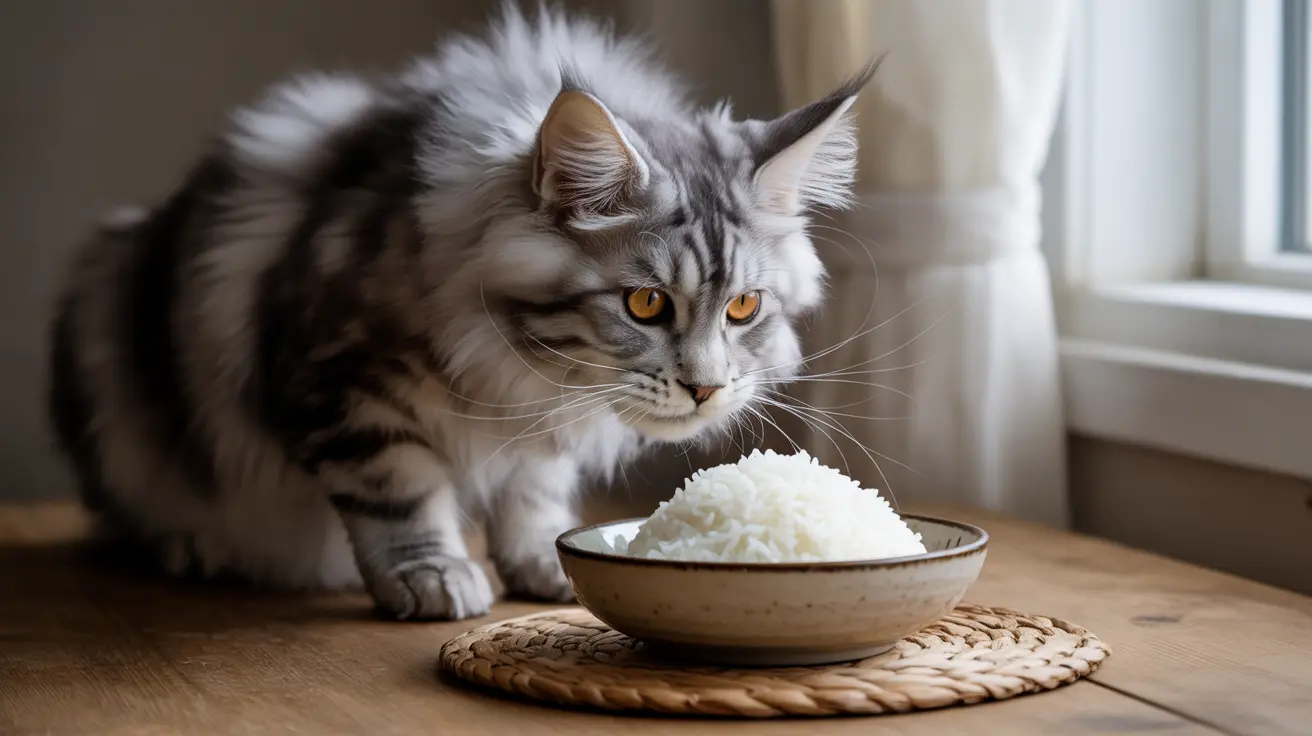If you've ever wondered whether your feline friend can safely consume rice, you're not alone. While cats are obligate carnivores who primarily need meat-based proteins, rice isn't toxic to them. However, understanding the proper way to feed rice to cats and knowing its limitations is crucial for your pet's health.
In this comprehensive guide, we'll explore everything you need to know about cats and rice, including safety considerations, potential benefits, and important warnings to keep in mind.
Understanding Cats' Nutritional Needs
Cats are strict carnivores, meaning their bodies are designed to derive nutrition primarily from animal proteins. Unlike omnivores, cats have specific dietary requirements that can only be met through meat-based foods. Their digestive systems aren't optimized for processing plant-based materials like rice.
The Truth About Rice and Cats
While cats can technically eat rice, it should never be a dietary staple. Rice provides minimal nutritional value for cats and mainly serves as a filler. Plain, well-cooked rice is safe in small amounts, but it shouldn't replace any portion of your cat's regular meat-based diet.
White Rice vs. Brown Rice for Cats
White rice is easier for cats to digest but offers fewer nutrients. Brown rice contains more fiber and nutrients but can be harder on your cat's digestive system. Neither type provides significant nutritional benefits for cats.
When Rice Might Be Beneficial
In certain situations, veterinarians might recommend small amounts of plain white rice:
- During digestive upsets
- To help firm up loose stools
- As part of a temporary bland diet
- When transitioning between foods
Proper Rice Preparation for Cats
If you're going to offer rice to your cat, follow these guidelines:
- Cook rice thoroughly
- Serve plain without seasonings
- Never add butter, salt, or spices
- Ensure it's cooled to room temperature
- Limit portions to less than a tablespoon weekly
Potential Risks and Concerns
Feeding too much rice to cats can lead to several health issues:
- Weight gain and obesity
- Digestive problems
- Nutritional deficiencies
- Increased diabetes risk
- Possible constipation
Frequently Asked Questions
Can cats safely eat rice, and how much rice is appropriate for them?
Yes, cats can safely eat small amounts of plain, cooked rice. The appropriate amount is no more than a tablespoon per week, and it should only be offered occasionally, not as a regular part of their diet.
What are the nutritional differences between white rice and brown rice for cats?
Brown rice contains more fiber, vitamins, and minerals than white rice but is harder for cats to digest. White rice is more easily digestible but has fewer nutrients. Neither type provides essential nutrition for cats.
Is rice ever recommended by veterinarians for cats with digestive issues?
Yes, veterinarians sometimes recommend small amounts of plain white rice for cats with mild digestive issues. It can help firm up loose stools and provide easily digestible energy during gastrointestinal upset.
What are the risks of feeding rice regularly to cats, especially regarding their health?
Regular rice consumption can lead to obesity, diabetes, nutritional deficiencies, and digestive problems in cats. As obligate carnivores, cats need primarily meat-based proteins, not carbohydrates like rice.
How should rice be prepared before giving it to a cat to ensure it is safe?
Rice should be thoroughly cooked in plain water, cooled to room temperature, and served without any seasonings, butter, salt, or other additives. Never feed raw rice to cats.
Conclusion
While cats can eat rice in moderation, it's important to remember that it should never become a significant part of their diet. If you're considering adding rice to your cat's food, always consult with your veterinarian first, especially if your cat has existing health conditions. Focus on providing your feline friend with a proper, meat-based diet that meets their nutritional needs as obligate carnivores.






